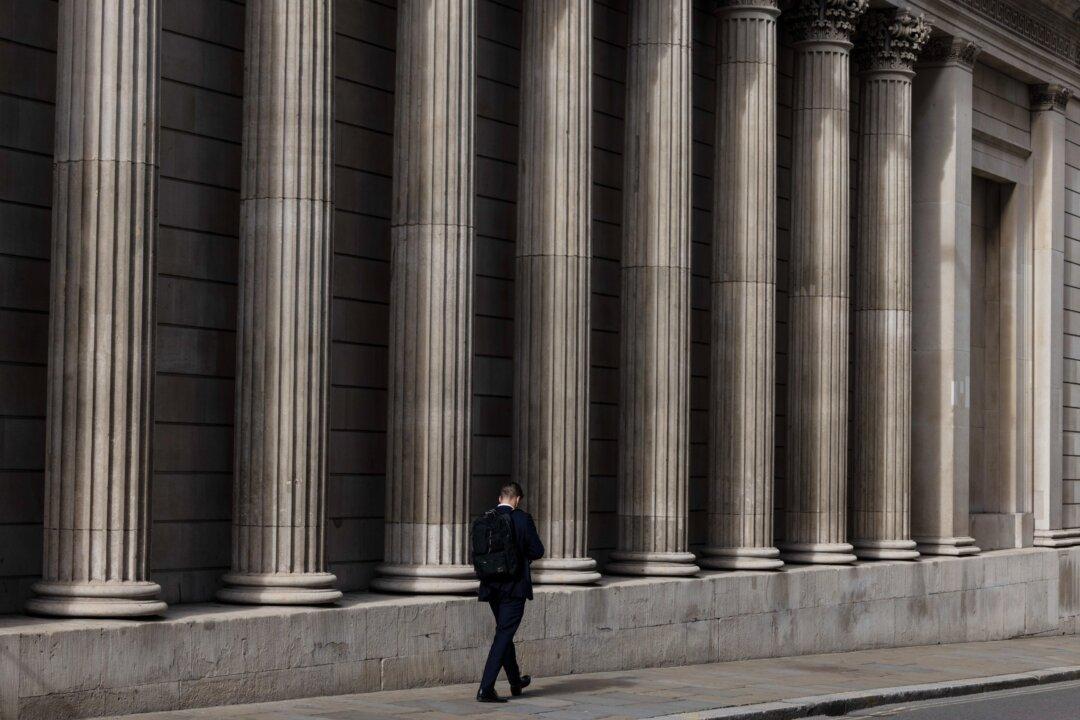The cost of UK government borrowing rose again on Wednesday as the Bank of England (BoE) confirms it will stop buying gilts on Friday as previously announced.
The 20-year gilt yield—the return investors get from UK government bonds—rose above 5 percent for the first time since Sept. 28, and the 30-year gilt yield also passed 5 percent on Wednesday morning.





